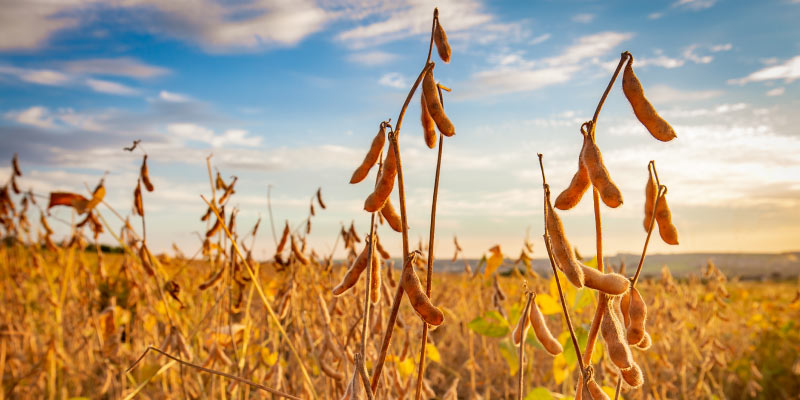
According to a new study from the University of Wisconsin-Madison Nelson Institute Center for Climatic Research (CCR), crop yields are being impacted by exposure to surface ozone, atmospheric aerosols, and heat stress.
The study, which was conducted by Department of Atmospheric and Oceanic Sciences (AOS) Chair and Nelson Institute Reid Bryson Professor of Climate, People, and Environment Ankur Desai, in partnership with UW-Madison alumnus Xiang Liu, was recently published by the American Geophysical Union (AGU) in Earth Future’s. The paper entitled, “Significant Reductions in Crop Yields from Air Pollution and Heat Stress in the United States” uses a statistical model to showcase the ways in which air quality has impacted maize and soybean yields in the United States.
The findings indicate that exposure to air pollutants and extreme temperature has led to a decline in agricultural output, but that regulations that reduce emissions can lead to a net positive benefit for crop yields. In fact, while poor air quality continues to have a negative impact on crop yields, this research indicates that emission regulations put in place since the 1980s have helped to slow further reductions in crop yields.
While these findings are impactful and provide a new, unique look at the effect of poor air quality, the story behind this research is equally unique as the work is the result of an undergraduate student project.
Co-author Liu was a student in Desai’s bioclimatology class, which is cross listed as a Nelson Institute and AOS class. In the class, students seek to answer a question about climate and the environment using freely available scientific data. For Liu, climate change and its connection to crops was of particular interest.
“I was impressed with his project,” Desai said of Liu. “So, when he later approached me looking for summer research opportunities, I thought we could take his paper from class and move forward with it. He had wanted to look at the deleterious impact air pollution has on crops. So, we reviewed the literature to see what was missing and what we learned quickly is that there has been a lot of studies on the effects of air pollution, but there haven’t really been any papers on putting everything together to understand the interactive effects between air pollution, a warming climate, and crop yields.”
After determining the focus of their research, Liu began looking through the data, studying every county in the United States that grows corn or soybeans and noting the impact of ozone pollution, aerosol pollution, and heat stress effects on yields.
“We all know that the ecosystem is pretty vulnerable to global warming resulting from carbon dioxide emissions, however, another key aspect of fossil fuel emission are air pollutants, and it is still unknown whether air pollution causes damage to food production,” said Liu. “Thus, we want to specifically quantify how many food yields were reduced by air pollution and heat stress.”
Liu, who was a junior studying environmental engineering at the time of the project, is now working on a master’s degree at Nanjing University in the field of atmospheric science.
“I was a visiting student from the China University of Mining and Technology, and so glad to have this excellent experience as a student at UW-Madison,” Liu shared. “First, it told me how to independently conduct a research project, which is very important for my future career. I also learned that research always needs suggestions from other perspectives, for example, from mentors and colleagues, one cannot consider and handle all situations. Last, I found the professors are always very happy to listen to students’ problems and thoughts.”
While this study is now complete, both Liu and Desai hope there will be an opportunity to expand on this research to better understand the impacts of air pollution on crop yields globally. In the meantime, however, they hope that this research will showcase the many benefits of reducing air pollution and the role air quality plays not just in human health, but in the health of the food system.
“Air quality policy has helped to save about one fifth of historical crop yields, which is surprising and implies that other countries can have a co-benefit in reducing air pollution levels,” Liu said. “I am also hoping future efforts in tackling climate change would be another effective way to secure food production due to a decrease in warming.”
Desai added, “As we continue to clean the air, we have what we typically call a co-benefit of reducing air pollution. Not only do we improve human health, but we also help to mitigate the future impact of climate change on agriculture.”